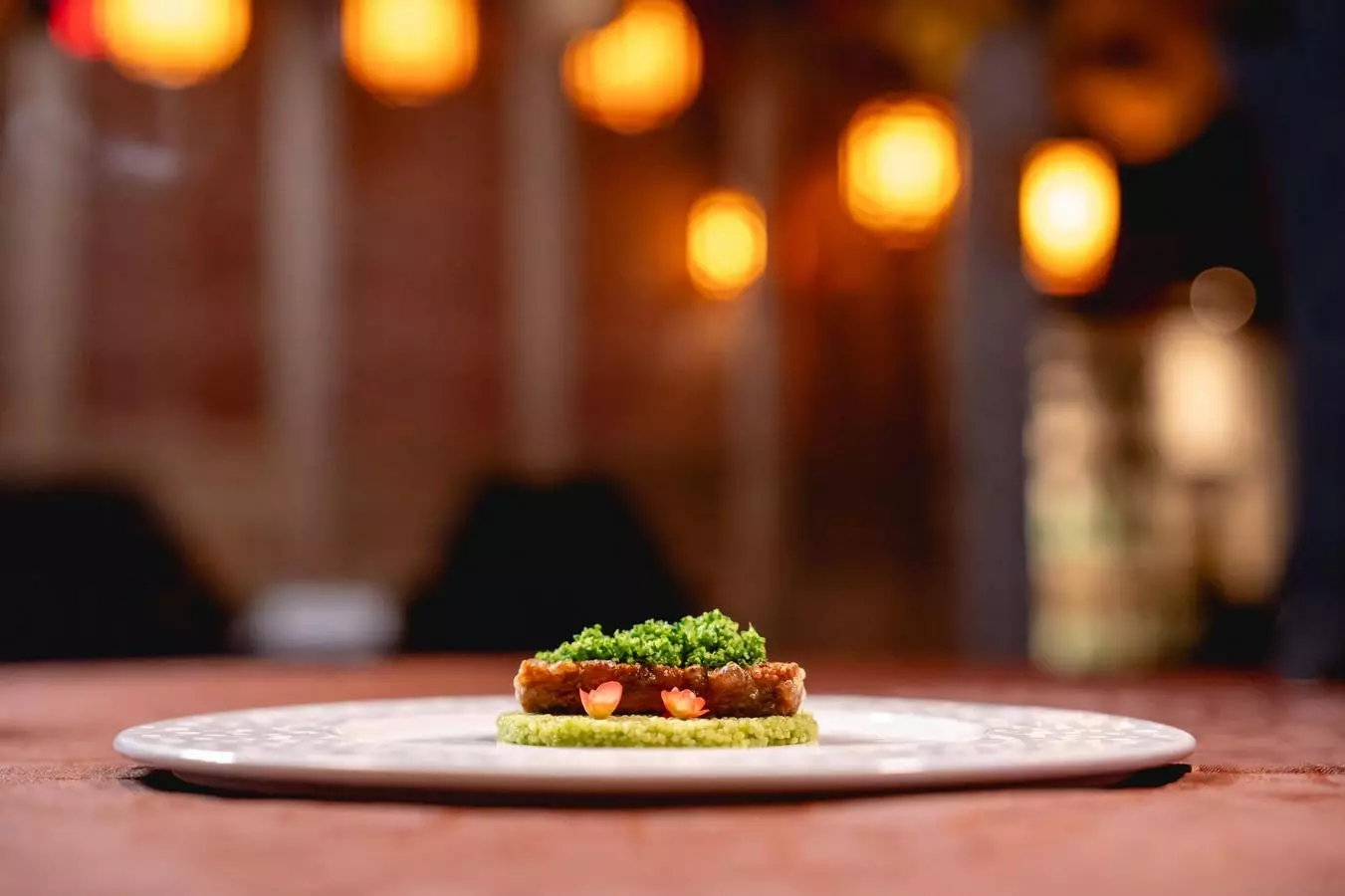On October 15, 2023, Manhattan welcomed Bodai, a remarkable vegetarian dining experience that promises to elevate plant-based cuisine in the heart of the city. Nestled discreetly within The Randolph House luxury residences, this new restaurant stands out not just for its gourmet offerings, but also for its unique approach to vegetarian cooking. Led by Master Chef Guo Wenjun, Bodai offers a meticulously crafted nine-course tasting menu that invites diners to explore the nuanced flavors and textures of vegetarian Chinese cuisine.
Bodai’s menu is deeply influenced by the ancestral recipes of Qing Palace Cuisine, which blends centuries of culinary tradition with contemporary innovations. Chef Guo, with over forty years of culinary expertise, meticulously researched and reinterpreted these ancient cooking practices, spending two years immersed in the teachings of his mentor, Master Chef Ding Guangzhou. As a seventh-generation disciple of the royal culinary lineage, Ding’s influence resonates throughout the menu, merging sacred cooking principles with modern dietary preferences. This homage to tradition establishes Bodai not just as a restaurant, but as a narrative journey through the evolution of vegetarian gastronomy.
Upon arrival at Bodai, guests are immediately enveloped in an ambiance of tranquility. The meal commences with a scroll-style menu presented in both Chinese and English, accompanied by the haunting melodies of traditional Guqin music. This introduction sets the tone for an immersive dining experience. Guests are invited to select from an array of complimentary teas, such as hibiscus or five black, enhancing the calming ambiance as they begin their culinary adventure.
The in-depth exploration of flavors starts with “The Life of Enlightenment,” where each of the five fundamental tastes in Chinese cuisine symbolizes different life experiences. This thoughtful presentation challenges diners to reflect on their own emotional journeys before proceeding to the intricately crafted courses that follow. Each dish is not merely a meal but a story, intricately narrated by the knowledgeable staff, ensuring a profound connection between the food and its cultural significance.
Bodai’s menu is a celebration of creativity and sustainability. Each course showcases carefully selected ingredients sourced from various regions, honoring both the earth and the culinary arts. The second course, Stickopus Japonicus, exemplifies this philosophy through innovative presentation, featuring cauliflower mushrooms paired with a refreshing cucumber sauce.
One standout dish is the Bodai Buddha Jumps Over the Wall, an elaborate slow-cooked broth that harmonizes 21 varieties of vegetables with a selection of nine mushroom types. This dish is a testament to Chef Guo’s dedication to crafting deep, umami-rich flavors while maintaining a vegetarian ethos.
As guests proceed through the menu, they encounter an array of carefully designed platters that evoke the complexity of flavors found in traditional Imperial Palace Cuisine. The Sweet and Sour Vegetarian Riblets reinvent classic flavors using tofu skin and Korean pears, challenging preconceived notions of vegetarian cooking. Each subsequent course, from the Nepal mushroom with crispy quinoa to the Ancient Recipe for Zhajiang Noodles, showcases Chef Guo’s ability to combine creative inspirations with rich culinary heritage.
Every section of the tasting menu leads to a moment of sweet surprise with the dessert, Nectar of the Gods. Served in an eggshell, this artistic conclusion features a delightful medley of yellow peaches, papayas, and silver snow swallow, resembling an egg yolk, designed to leave a lasting impression on the palate. This dessert encapsulates the overarching theme of Bodai—a connection between art, taste, and mindful dining.
Bodai transcends the conventional perception of vegetarian dining, presenting a comprehensive culinary experience that integrates history, culture, and flavor into each course. Chef Guo’s commitment to low-fat, low-sugar, and high-fiber ingredients, devoid of additives, exemplifies a modern agricultural movement toward healthful gastronomy. As more patrons seek healthier dining options, Bodai stands at the forefront, offering not just food, but a holistic exploration of vegetarian cuisine that harmonizes body and soul. This debut marks an essential movement within Manhattan’s dining scene, affirming that vegetarian meals can be both luxurious and deeply satisfying.


Leave a Reply